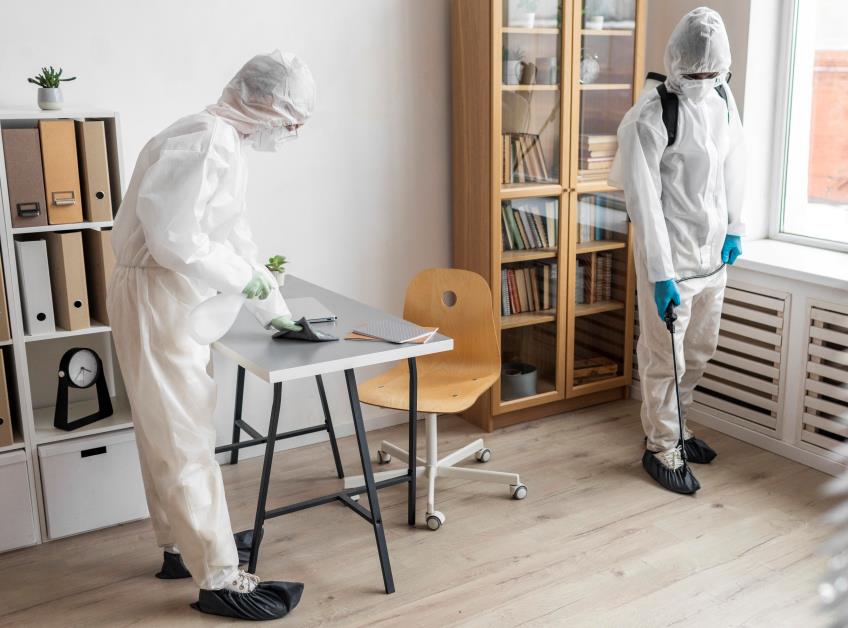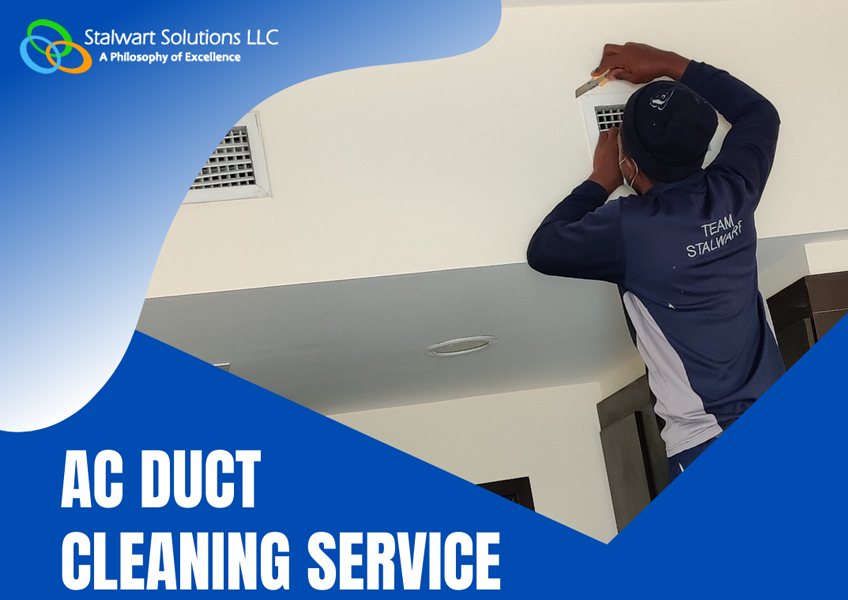15
Oct
A Complete Handbook for Identifying and Preventing Household Pests
No one likes the idea of unwanted pests crawling around their home, yet they can quickly become a serious issue if left unchecked. Household pests are more than just a nuisance—they can pose health risks, damage your property, and spread disease. Understanding how to identify and prevent these unwelcome guests is key to keeping your home safe and clean. Stalwart Solutions has a versatile team that provides pest control service in Dubai. Call our technicians for expert pest removal or book a home maintenance package that includes services like AC duct cleaning, disinfection services etc.
What are Household Pests?
Household pests include a variety of insects and rodents that can invade your home, disrupt your peace of mind, and potentially harm your family’s health. Common household pests range from tiny ants to larger rodents like rats and mice, each presenting their own set of challenges.
Why is Pest Control Important?
Pest control is not only about preventing damage to your home but also about protecting the health of your loved ones. Many pests carry diseases, and some can even trigger allergies or asthma attacks. Proactive pest control can help reduce these risks and keep your living environment healthy.
Common Household Pests
Ants: Ants are small, but they can cause big problems. Known for their ability to find food quickly, they often invade kitchens in search of crumbs or sugary items.
Cockroaches: Cockroaches are notorious for spreading diseases and contaminating food. They thrive in dark, damp places and are particularly hard to eliminate without proper treatment.
Termites: Cockroaches are notorious for spreading diseases and contaminating food. They thrive in dark, damp places and are particularly hard to eliminate without proper treatment.
Rodents: Rodents like rats and mice not only chew through wires and insulation but can also carry diseases like hantavirus and salmonella.
Bed Bugs: These tiny pests feed on human blood and are often found in mattresses and upholstered furniture. Bed bug bites can cause itchy welts and allergic reactions.
Spiders: While most spiders are harmless, their webs and presence can still be unsettling. Some species, however, such as the black widow or brown recluse, are venomous and can pose health risks.
Flies: Flies can quickly multiply and are often drawn to food and waste. They are known for spreading bacteria and disease.
Mosquitoes: Mosquitoes are not just annoying but also dangerous, as they can carry viruses like Zika and West Nile.
Identifying Household Pests
How to Spot Ants: Ants typically travel in lines, often moving in and out of cracks or tiny gaps around doors and windows. They are usually found near food sources.
Recognizing Cockroaches: Cockroaches are fast and usually hide during the day. If you see one skittering across the floor or notice droppings, it’s likely you have more hiding nearby.
Termite Damage Warning Signs: Termites leave behind small piles of sawdust-like material and create hollow-sounding wood. Look for bubbling paint or tiny holes in walls.
Spotting Rodents in Your Home: Signs of a rodent infestation include gnawed wires, small droppings, and scratching sounds in walls or ceilings.
Bed Bug Bites and Hiding Places: If you wake up with itchy, red bites, bed bugs may be the culprit. Check your mattress, headboard, and baseboards for tiny, rust-colored stains.
Identifying Common Spiders: Look for webs in corners, basements, or garages. Some spiders, like the brown recluse, prefer hiding in shoes, clothes, or other undisturbed areas.
Recognizing Flies and Maggots: Flies buzzing around your home, especially near food, are a clear sign. Maggots (fly larvae) often appear in rotting food or garbage.
Signs of Mosquito Infestation: If you notice mosquitoes around standing water or get bitten frequently, you may have a mosquito problem.
The Health Risks of Household Pests
Diseases Spread by Cockroaches: Cockroaches are known to carry pathogens like salmonella and E. coli, which can lead to food poisoning and other illnesses.
Rodent-Related Health Risks: Rodents can transmit diseases such as leptospirosis, hantavirus, and plague. Their droppings and urine can also contaminate food and surfaces.
Bed Bugs and Allergic Reactions: While bed bugs aren’t known to transmit diseases, their bites can cause allergic reactions and intense itching, leading to secondary infections if scratched.
The Dangers of Mosquitoes and Flies: Mosquitoes can transmit serious viruses like malaria, dengue, and West Nile, while flies can spread bacteria that lead to foodborne illnesses.
Preventing Household Pests
Keeping Your Home Clean and Clutter-Free: A tidy home is less attractive to pests. Regular cleaning, especially in the kitchen and bathroom, can reduce the chances of an infestation.
Proper Food Storage: Store food in airtight containers to keep ants, rodents, and other pests from accessing your pantry.
Sealing Entry Points: Inspect your home for cracks and gaps around windows, doors, and foundations. Sealing these can prevent pests from getting inside.
Controlling Moisture and Leaks: Pests like cockroaches and termites are drawn to damp environments. Fix any leaks or standing water sources to keep them at bay.
Routine Inspections and Maintenance: Regularly inspect your home for signs of pests and perform maintenance to keep potential infestations in check.
Natural Pest Control Methods
Using Essential Oils and Natural Repellents: Essential oils like peppermint, tea tree, and lavender can help repel pests naturally. These can be used in sprays or diffusers around your home.
Keeping Your Garden Pest-Free: Maintain a well-kept garden by removing standing water and trimming back plants. This helps reduce mosquito breeding areas and prevents other pests from taking shelter near your home.
Using Traps and Barriers: Non-toxic traps and barriers can be effective in controlling rodents and insects without using harsh chemicals.
Professional Pest Control Solutions
When to Call a Professional: If your pest problem is too large or persistent, it’s time to call a professional. They have the expertise and tools to safely eliminate the problem. Stalwart Solutions offers comprehensive pest control solutions in Dubai for both residential and commercial environments. Contact us now if you are looking for the best pest control service in the city.
Methods Used by Pest Control Professionals: Professionals may use a combination of baits, traps, chemical treatments, and exclusion methods to rid your home of pests.
The Cost of Professional Pest Control: Costs can vary depending on the severity of the infestation, the type of pest, and the size of your home. Most services offer one-time treatments or ongoing plans.
Long-Term Pest Prevention Strategies
Regular Home Maintenance: Keep up with routine maintenance such as sealing cracks, fixing leaks, and cleaning gutters to make your home less appealing to pests.
Educating Family Members: Teach everyone in your household about proper hygiene and food storage practices to prevent pest problems.
Ongoing Pest Control Practices: Even after a pest problem is resolved, it’s essential to stay vigilant. Regular inspections and preventive measures will help keep your home pest-free long term.
Conclusion
In conclusion, identifying and preventing household pests is crucial for maintaining a healthy home environment. By staying proactive, implementing preventive strategies, and knowing when to seek professional help.

















